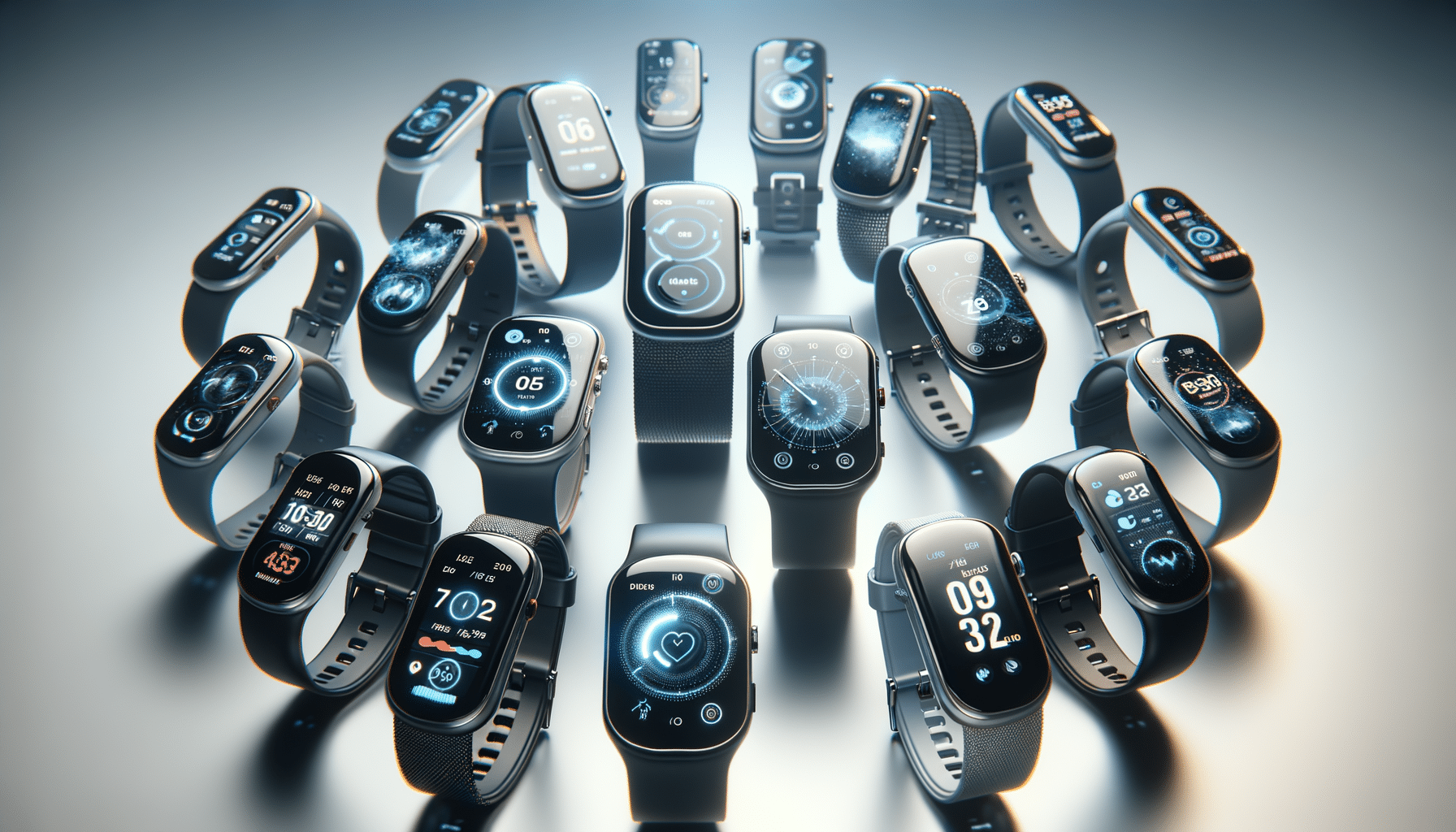
Discover the Latest Innovations in Type 2 Diabetes Technology
The Rise of Diabetes Watches
In recent years, diabetes management has become increasingly sophisticated, with technology playing a pivotal role. One of the most notable advancements is the development of diabetes watches. These devices are designed to help individuals monitor their blood sugar levels conveniently and discreetly. The rise of diabetes watches is driven by the need for continuous glucose monitoring (CGM), which provides real-time data on blood sugar levels, allowing for better management of diabetes.
Diabetes watches are equipped with sensors that can detect glucose levels through the skin. This non-invasive method of monitoring is a significant improvement over traditional finger-prick tests. These watches provide users with the ability to track their glucose levels continuously, which can be particularly beneficial for those with Type 2 Diabetes. By offering real-time insights, users can make informed decisions about their diet, exercise, and medication.
Moreover, diabetes watches often come with additional features, such as heart rate monitoring, sleep tracking, and smartphone connectivity. This integration allows users to manage their overall health more effectively. As technology continues to advance, diabetes watches are expected to become even more sophisticated, offering more accurate readings and additional health metrics.
Smart Watch Blood Sugar Monitoring
Smartwatches have become an integral part of our daily lives, offering a range of functionalities that go beyond just telling time. One of the latest innovations in this space is the ability to monitor blood sugar levels. Smart watch blood sugar monitoring is a game-changer for individuals with diabetes, providing a seamless way to keep track of glucose levels without the need for separate devices.
These smartwatches use advanced sensors to measure glucose levels through the skin. The data is then transmitted to a connected app, where users can view their readings and trends over time. This continuous monitoring helps users identify patterns and triggers that affect their blood sugar levels, enabling them to make proactive changes to their lifestyle and treatment plan.
In addition to blood sugar monitoring, these smartwatches often offer other health-related features, such as activity tracking, heart rate monitoring, and sleep analysis. This holistic approach to health management is particularly beneficial for individuals with diabetes, as it allows them to monitor various aspects of their health in one place. As the technology continues to evolve, smart watch blood sugar monitoring is expected to become even more accurate and user-friendly.
The Benefits of a Blood Sugar Monitor Watch
The introduction of blood sugar monitor watches has revolutionized the way individuals manage their diabetes. These devices offer numerous benefits, making them an attractive option for those looking to improve their health management. One of the primary advantages of a blood sugar monitor watch is the convenience it provides. Users can monitor their glucose levels discreetly and effortlessly, without the need for traditional testing methods.
Another significant benefit is the ability to receive real-time data. This continuous monitoring allows users to respond quickly to changes in their blood sugar levels, reducing the risk of complications associated with diabetes. Additionally, blood sugar monitor watches often come with customizable alerts, notifying users when their levels are too high or too low. This feature is particularly useful for individuals who may not always recognize the symptoms of fluctuating glucose levels.
Moreover, these watches often integrate with smartphone apps, providing users with a comprehensive overview of their health data. This integration allows for easy tracking and analysis of trends over time, empowering users to make informed decisions about their health. As technology continues to advance, blood sugar monitor watches are likely to become even more sophisticated, offering enhanced features and improved accuracy.
Comparing Diabetes Watches and Smart Watch Blood Sugar Monitoring
When it comes to managing diabetes, both diabetes watches and smart watch blood sugar monitoring offer unique benefits. Understanding the differences between these two options can help individuals choose the right device for their needs. Diabetes watches are specifically designed for glucose monitoring, offering real-time data and continuous tracking. These devices are ideal for individuals who require constant monitoring and want a dedicated device for this purpose.
On the other hand, smart watch blood sugar monitoring is a feature integrated into a broader health-focused device. These smartwatches offer a range of functionalities beyond glucose monitoring, such as fitness tracking, heart rate monitoring, and sleep analysis. For individuals looking for a multifaceted health management tool, a smartwatch with blood sugar monitoring capabilities may be the better option.
Both devices offer the convenience of non-invasive monitoring and smartphone connectivity, allowing users to track their health data easily. However, the choice between a diabetes watch and a smartwatch with blood sugar monitoring ultimately depends on the user’s lifestyle, preferences, and specific health needs. As technology continues to evolve, both options are expected to offer even more advanced features, making diabetes management more accessible and effective.
The Future of Diabetes Technology
The future of diabetes technology is bright, with continuous advancements paving the way for more effective and convenient management options. As diabetes watches and smart watch blood sugar monitoring continue to evolve, we can expect to see even more innovative features that enhance user experience and improve health outcomes. One area of focus is the accuracy of glucose monitoring, with ongoing research aimed at developing more precise sensors and algorithms.
Another exciting development is the integration of artificial intelligence (AI) in diabetes management. AI-powered systems can analyze vast amounts of health data, providing personalized insights and recommendations for users. This technology has the potential to revolutionize diabetes care, offering tailored treatment plans and real-time feedback based on individual health trends.
Furthermore, the future of diabetes technology may see increased collaboration between tech companies and healthcare providers. This partnership could lead to more comprehensive solutions that address the diverse needs of individuals with diabetes. As we look to the future, the continued innovation in diabetes technology promises to make managing this chronic condition more manageable and less intrusive, ultimately improving the quality of life for millions of individuals worldwide.


